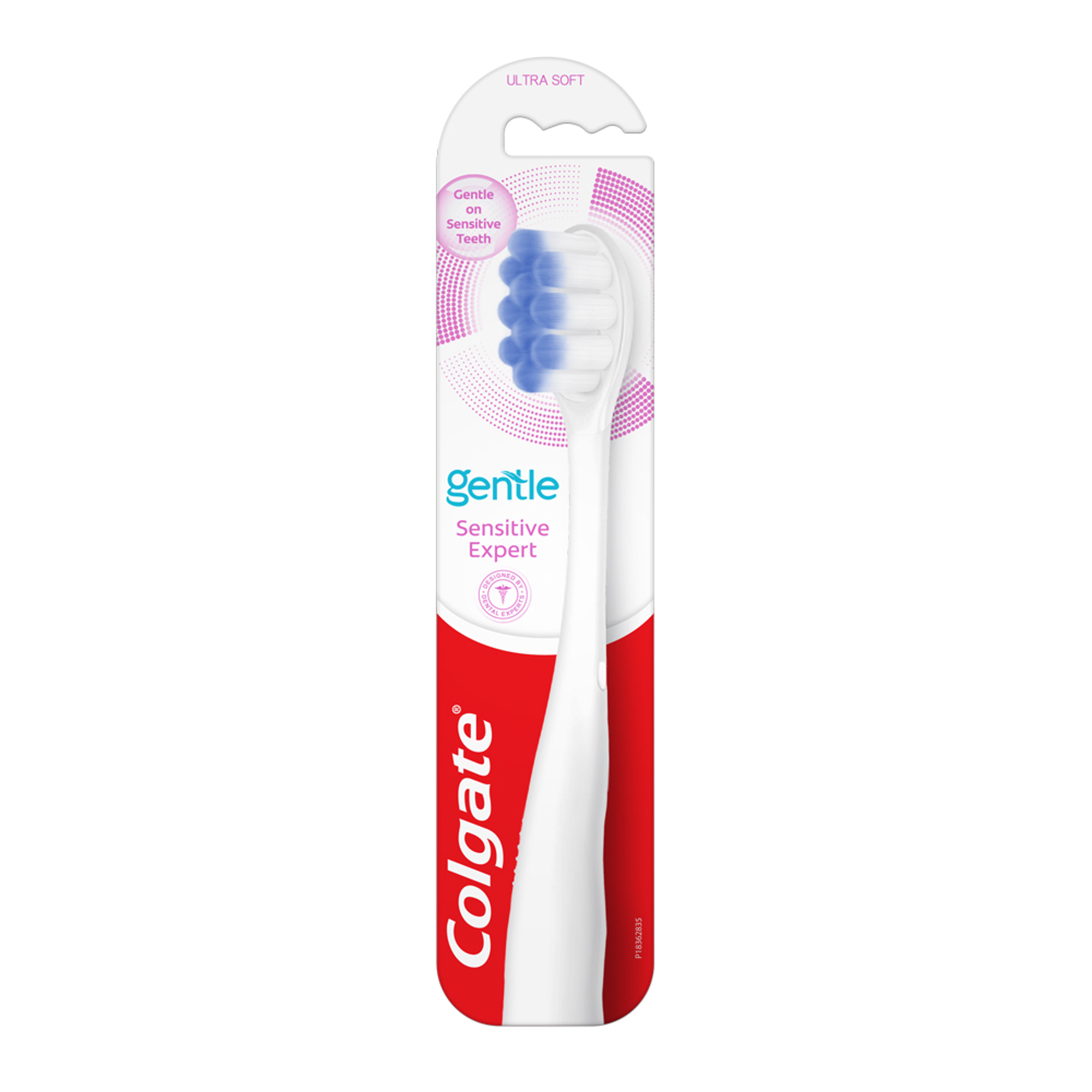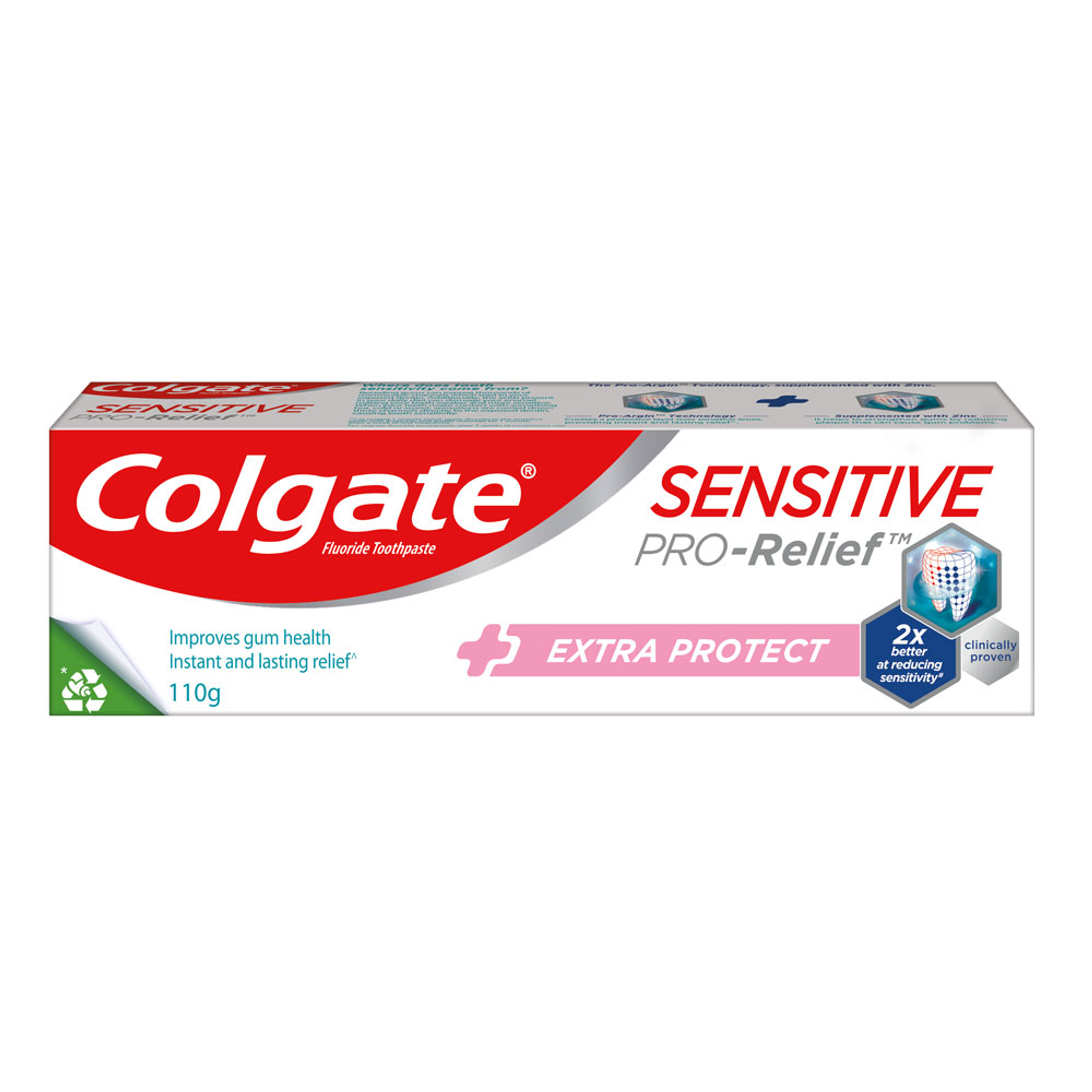What is Tooth Sensitivity?
Tooth sensitivity, also known as dentin hypersensitivity, is characterised by a short, sharp pain in the teeth when exposed to certain stimuli. This pain occurs when the inner layer of the tooth, called dentin, becomes exposed, and the microscopic tubules within it allow heat, cold, acidic, or sweet substances to reach the nerve endings. The intensity of sensitive teeth can vary and may be temporary or chronic, depending on the underlying cause. Many people experience this condition at some point in their lives, making it a widespread concern in dental health.
Tooth Sensitivity Symptoms
The main symptom of tooth sensitivity is a sudden, sharp pain when the teeth are exposed to certain triggers. These triggers can include:
Hot, cold, or sweet foods and drinks
Cold air
Brushing or flossing the teeth
Acidic foods and drinks
The pain is usually temporary and goes away once the trigger is removed. If you’re experiencing any symptoms, it’s important to see your dentist as soon as possible to identify the cause of your sensitive teeth. Early diagnosis allows you to get the right treatment and prevent the issue from worsening.
Tooth Sensitivity Causes
Tooth sensitivity occurs when the tooth structure is damaged, exposing the underlying soft tissue called dentin and tooth nerves to external stimuli. There are several common sensitive teeth causes:
Gum recession: This leaves the root surface exposed, with a thinner enamel layer. Aggressive brushing, periodontal diseases, or natural ageing can cause gum recession.
Tooth wear: Brushing too hard or using a hard-bristled toothbrush can wear down the tooth enamel and expose the dentin. This is especially common near the gums.
Tooth erosion due to highly acidic foods and beverages: Acids can wear away the enamel, exposing the dentin. Regular consumption of acidic foods and drinks can contribute to this.
Tooth decay, worn fillings, and cracked teeth: These can expose the dentin and allow stimuli to reach the nerves. A cracked tooth exposes the dentin to external stimuli, irritating the tooth nerve and causing pain.
Grinding or clenching the teeth: This can wear down the enamel over time, known as bruxism. Teeth grinding can also lead to sensitive teeth by exposing the underlying dentin.
Dental procedures: Procedures like professional cleaning, crown replacement, and tooth whitening may also cause temporary sensitivity. Tooth bleaching can be a side effect, as some may experience this briefly during or after the treatment.
Periodontitis: Gum diseases, or periodontal diseases, can lead to tooth sensitivity by damaging the bone and supporting tissues, exposing tooth root surfaces, and causing pain.
Poor dental hygiene: Plaque and tartar buildup due to poor oral hygiene can cause gum recession and expose tooth roots to stimuli, resulting in sensitivity.
Gastroesophageal reflux (GERD): Acid reflux can also contribute to enamel erosion and dentin exposure, leading to tooth sensitivity.
Identifying the causes of sensitive teeth can help you take the right steps to prevent discomfort and protect your dental health. If you are experiencing persistent tooth sensitivity, it’s important to see your dentist to develop a personalised treatment plan.
How to Prevent Sensitive Teeth?
Preventing teeth from sensitivity and learning how to cure sensitive teeth involves adopting good oral hygiene practices and lifestyle adjustments. Here are some effective strategies for sensitive teeth:
Use a Soft-Bristled Toothbrush: Opt for a soft-bristled toothbrush and gentle brushing techniques to minimise enamel wear and gum recession.
Practise Good Oral Hygiene: Brush your teeth at least twice daily using fluoride toothpaste and floss daily to remove plaque buildup and prevent gum disease. Regular dental check-ups are also essential.
Limit Acidic Foods and Beverages: Reduce your intake of acidic foods and drinks, such as citrus fruits, soda, and wine. If you do consume them, rinse your mouth with water afterwards.
Avoid Teeth Grinding: If you grind your teeth, consider using a mouthguard at night to protect your enamel and reduce sensitivity.
Choose Desensitising Toothpaste: Look for toothpaste specifically designed for sensitive teeth. These products contain compounds that help block the transmission of pain signals from the tooth surface to the nerve.
- Stay Hydrated: Drink plenty of water throughout the day to help wash away food particles and maintain saliva production, which protects tooth enamel.
- Use Fluoride Treatments: Ask your dentist about fluoride treatments or mouthwash that can help strengthen enamel and reduce sensitivity.
Tooth Sensitivity Treatment
If you are already experiencing sensitive teeth and are worried about how to treat sensitive teeth, there are various tooth sensitivity treatment options that can help alleviate discomfort:
Fluoride varnish: Your dentist can apply a concentrated fluoride varnish directly to the sensitive areas of your teeth. This helps strengthen the enamel and block pain.
Dentin sealants: Your dentist can apply a resin-based sealant to cover exposed dentin areas and physically block stimuli from reaching the nerves.
Gum grafting: In cases of gum recession, your dentist can graft a small amount of gum tissue over the exposed root surfaces to cover them.
Root canal treatment: For severe, persistent sensitivity, a root canal may be recommended to remove the affected pulp and eliminate the pain.
Dental bonding: A tooth-coloured resin material can cover exposed root surfaces and seal off sensitive areas.
When to See a Dental Professional?
It is important to consult a dental professional if you experience persistently sensitive teeth or if you’re looking for guidance on how to decrease tooth sensitivity when it’s accompanied by other symptoms, such as:
Severe pain that lasts for an extended period
Swelling or redness in the gums
Pain when biting or chewing
Visible damage to the teeth, such as cracks or chips
Your dentist can help identify the underlying cause of your sensitivity and recommend an appropriate treatment plan. Early intervention can prevent further complications and improve your overall oral health.
Sensitive teeth can be a frustrating and uncomfortable condition, but understanding its causes and implementing preventive measures can significantly reduce its impact on your daily life. You can effectively manage sensitivity and maintain a healthy, pain-free smile by practising good dental care, avoiding triggers, and seeking professional treatment when necessary. If you experience persistent sensitivity, do not hesitate to contact your dentist for guidance and support. Your oral health is worth it.
Frequently Asked Questions
1. How do I fix tooth sensitivity?
To fix tooth sensitivity, use desensitising toothpaste, practise gentle brushing with a soft-bristled toothbrush, and avoid acidic foods. If sensitivity persists, consult your dentist for treatments like fluoride applications, dental bonding, or sealants.
2. What happens if you ignore sensitive teeth?
Ignoring sensitive teeth can worsen pain, potential tooth decay, gum disease, or more severe dental issues. It may also indicate underlying problems that require professional treatment.
3. How can I fix my sensitive teeth fast?
Use desensitising toothpaste and avoid triggers like hot or cold foods for quick relief from sensitive teeth. If sensitivity persists, consult a dentist and consider doing a fluoride treatment.
4. How long does tooth sensitivity last?
Depending on the cause, tooth sensitivity can last a few minutes to several days. If sensitivity persists for an extended period, it’s advisable to consult a dentist for evaluation and treatment.













